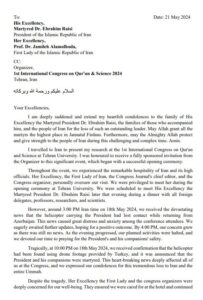Imagine an individual walking towards their parked car. Suddenly, they observe a stranger seated behind the wheel attempting to start the car, and, by fate, they succeed in starting it at that very moment. What should the car owner do? Given the considerable distance to the car and the likelihood of reaching it being low, should they run? Should they shout? Or should they stand still, attempting to maintain composure, and say to themselves:
Today, neither the beginning nor the end of the world is
Oh, the sorrow and joy hidden behind the curtain?
The truth is, I am enamored with this ghazal; nevertheless, sometimes, I find hearing it inappropriate. In times when it is a moment for running and shouting, a place for uproar and boiling emotions, reading these verses becomes untimely advice.
Apart from the fact that the first verse is reminiscent of the well-known phrase “the world has not reached its end,” which is often said to those who believe the world has come to an end. I am not among those who claim that good and bad are relative matters, but I say that every statement has its season and every poem has its spring.
The season pertaining to the plain of this poem is autumn, so on a day when the breath of the spring breeze stirs, and the scent of flowers and tulips fills the air, you should not read this poem. Patience and silence belong to one season, while uproar and shouting belong to another.
But how do we know which season is which? What is the criterion and measure? Without a logical and fixed standard, we cannot defend or define a place for the correctness or incorrectness of concepts.
Without a criterion, everything will be subjective and precarious. What is your criterion for assessing the rightness or wrongness of phenomena?






